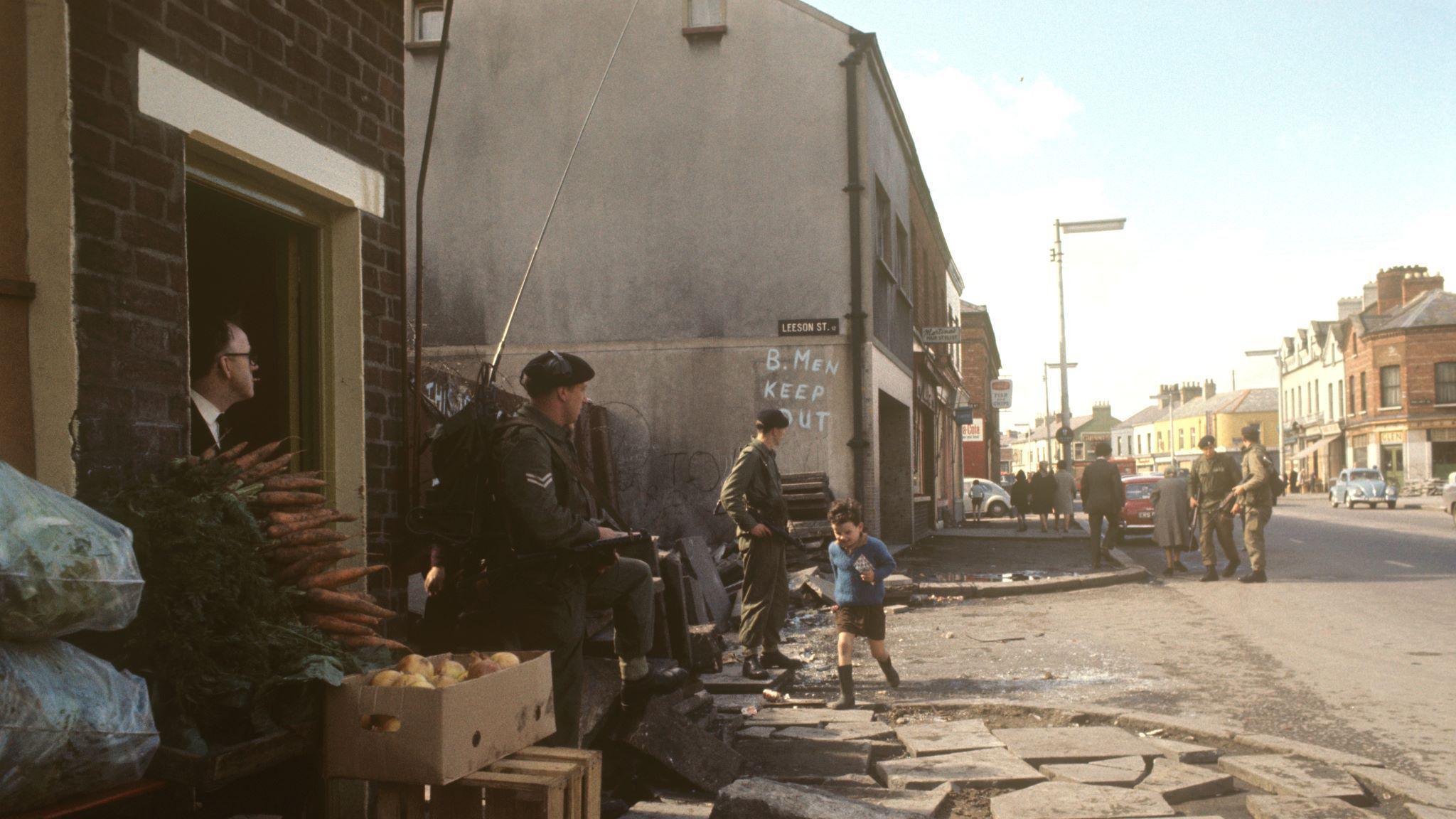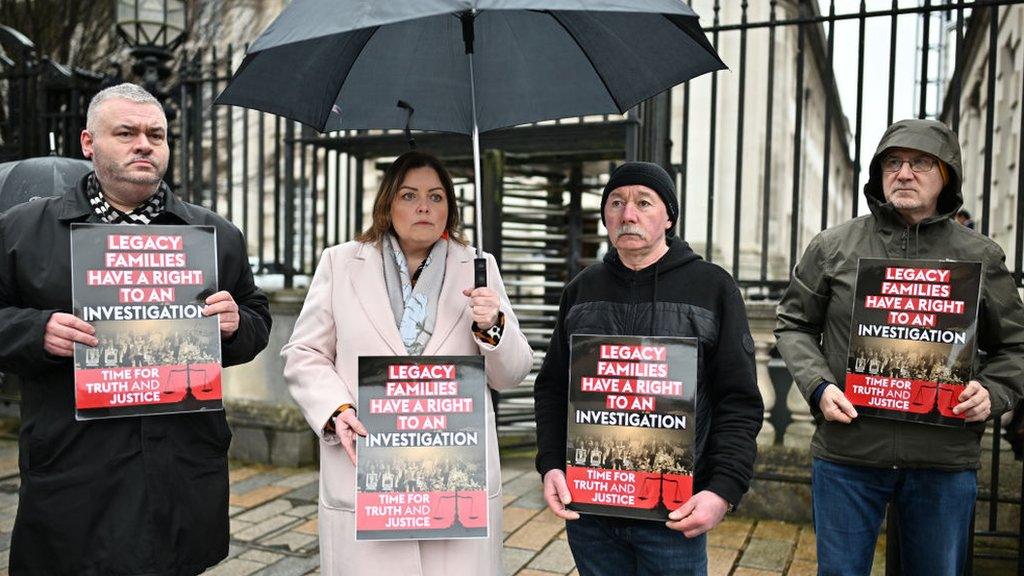Date set for publication of Troubles' legacy framework

More than 3,500 people lost their lives during the 30-year conflict in Northern Ireland
- Published
The UK and Irish governments are due to publish their long-awaited framework to deal with the legacy of the Troubles on Friday.
It is understood the framework will see the overhaul of the current legacy body, the Independent Commission for Reconciliation and Information Recovery (ICRIR) which will be renamed the Legacy Commission.
The body will include provisions for a new inquisitorial process which will look at Troubles-related deaths and will be overseen by judges.
There will also be a separate body to provide information retrieval for those families who want to find out more about their relatives' deaths.
The new processes are similar to those agreed in the Stormont House deal in 2014, which also had the support of London and Dublin but was never implemented.
It is understood the framework will be unveiled by the Northern Ireland Secretary, Hilary Benn, and Tánaiste (Deputy Prime Minister) Simon Harris at a joint news conference.
It is not yet clear whether the Irish government will drop its legal challenge against the UK government over the controversial Legacy Act which was drawn up by the previous Conservative government.
The conflict in Northern Ireland known as the Troubles lasted almost 30 years and cost the lives of more than 3,500 people.
'Cow tow'

Gavin Robinson said his party's starting point on the issue was that it is a 'sovereign decision' of the UK government
The DUP leader says the UK should not "cow tow" to the Irish government on legacy, especially when is taking an inter-state case against Britain.
Gavin Robinson said his party's starting point on the issue was that it is a "sovereign decision" of the UK government.
"They should not be providing dual control to a foreign state which has not assisted victims in Northern Ireland over the last 30 years," he added.
"Nor should they abdicate their responsibility and nor should they cow tow to a government which is taking an inter-state case against ours."
'Scrutinise closely'
In a statement Sinn Féin MLA Gerry Kelly said any legacy framework "must command the confidence of the families of victims and survivors".
"Their voice will be the most important in this process," he said.
Kelly said his party will "scrutinise" the legacy framework "closely" when it is published on Friday.
What is the Northern Ireland Troubles (Legacy and Reconciliation) Act?
The act was passed by the Conservative government in September 2023 despite opposition from Labour, all Northern Ireland parties, several victims' groups and the Irish government.
It created a new legacy body known as the ICRIR to take over all Troubles-era cases from 1 May 2024, including those on the desk of the Police Service of Northern Ireland.
The act shut down all historical inquests.
The act's most controversial element, the offer of conditional immunity to suspects, was disapplied following legal action by bereaved families.
The court ruled this part of the act was incompatible with human rights legislation and the Windsor Framework.
Last summer, the Labour government wrote to the Belfast courts abandoning an appeal against the striking out of the amnesty clause in the legislation.
In December, the secretary of state formally started the process to repeal the act.
However, as well as prompting a backlash from veterans who do not want to see the law repealed, he was criticised by some political parties and victims' groups for not moving quickly enough.
Related topics
- Published3 September

- Published5 December 2024

- Published28 February 2024
